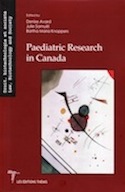- C.D.A.C.I.
- Collection Droit, biotechnologies et société
- Droit administratif
- Droit autochtone
- Droit civil
- Droit constitutionnel
- Droit des affaires
- Droit des technologies
- Droit international
- Droit pénal
- Droit public général
- Jurisprudence
- Les conférences Albert-Mayrand
- Les conférences Roger-Comtois de la Chaire du Notariat
- Les Conférences Chevrette-Marx
The Chevrette-Marx Lectures - Les journées Maximilien-Caron
- Lois et règlements
- Méthodologie
- Théorie du droit
- Titres parus antérieurement

- Internationalisation des services génétiques: analyse comparative des normes de gouvernance canadiennes, américaines, britanniques et australiennes (L')
- Anne Marie Tassé
- Béatrice Godard
- ISBN : 978-2-89400-277-3
- Date de parution : 2009-10-01
191 pages
55,00$ En rupture de stock
L'encadrement des services génétiques constitue une question d'actualité, exacerbée par l'essor actuel des échanges transnationaux d'échantillons génétiques. Cette internationalisation des services génétiques s'explique par la rareté de certains troubles génétiques et par le nombre restreint de laboratoires effectuant des tests spécialisés. Par leur nature même, les tests génétiques comportent des risques et doivent faire l'objet d'un contrôle serré. L'absence de contrôle international des laboratoires génétiques soulève donc d'importantes questions juridiques. Dans le présent ouvrage, les auteures s'attachent, en premier lieu, à une étude détaillée des normes de gouvernance encadrant les prestations des laboratoires génétiques canadiens, américains, britanniques et australiens, notamment en matière de contrôle de la qualité, selon une perspective comparative. En second lieu, les auteures étudient quelques questions liées aux droits des patients de services génétiques et au sort de ces droits lors d'échanges internationaux d'échantillons génétiques à des fins de test. L'hétérogénéité des normes régissant les laboratoires génétiques soulève des questions éthiques et démontre la nécessité d'ouvrir un dialogue international afin d'uniformiser les normes d'encadrement des laboratoires génétiques.

- Accommodement raisonnable en droit international privé québécois (L') — 7e Conférence Roger-Comtois de la Chaire du Notariat
- Jeffrey A. Talpis
- ISBN : 978-2-89400-266-7
- Date de parution : 2009-07-01
98 pages
8,00$ En rupture de stock
- L'ouvrage présente le texte de la septième conférence Roger-Comtois prononcée par le professeur Jeffrey A. Talpis, suivi d'un commentaire par Mariel Revillard.

- Contrat conjugal : pour l'amour ou pour la guerre? (Le)
- Alain Roy
- Violaine Lemay
- ISBN : 978-2-89400-264-3
- Date de parution : 2009-01-01
130 pages
35,00$ En rupture de stock
- Lorsqu’on prend le temps de rencontrer et l’écouter le praticien du droit d’aujourd’hui, qu’apprend-on? Qu’est-ce que le contrat conjugal de l’heure? Quelle attitude convient-il d’adopter face à la nouvelle « réalité » des couples contemporains? Compte tenu des règles de droit, que faut-il faire et ne pas faire? À quels besoins normatifs le contrat conjugal peut-il répondre?
Si la pratique du contrat conjugal des juristes peut s’avérer instructive, il en va tout autant de la pratique mise de l’avant par des non-juristes. Fait assez méconnu, la théorie du contrat conjugal et sa pratique professionnelle ne sont pas l’apanage des juristes. D’autres savant ont analysé, théorisé, critiqué le contrat et d’autres professionnels l’ont pratiqué. Parmi eux se trouvent la communauté scientifique de la psychologie et la population professionnelle des psychothérapeutes conjugaux et familiaux, pour qui le contrat compte non seulement au rang des outils d’intervention clinique, mais aussi parmi les concepts centraux de la théorisation du couple. Qu’est-ce que le contrat conjugal aux yeux de ces « étrangers » disciplinaires? Comment leur vision du contrat et de la normativité contractuelle se compare-t-elle à celle des juristes? Et en quoi cette comparaison peut-elle s’avérer utile dans l’entreprise de rénovation théorique du concept juridique de contrat conjugal?
Ce sont là les questions au centre de la recherche dont nous présentons ici les résultats. Des résultats d’une grande richesse qui, nous l’espérons, contribueront un tant soit peu au renouvellement des pratiques professionnelles et de la pensée juridique.

- Interprétation des lois
- Pierre-André Côté
- ISBN : 978-2-89400-270-4
- Date de parution : 2009-01-01
865 pages
95,00$ En rupture de stock
- Depuis sa première édition, en 1982, l'ouvrage Interprétation des lois a fait l'objet de nombreux remaniements, ajouts et précisions qui ont permis de le maintenir au diapason de la doctrine et de la jurisprudence. Cette quatrième édition du traité Interprétation des lois s'inscrit dans l'oeuvre de consolidation de l'état du droit des éditions précédentes, en même temps qu'elle constitue, pour la première fois, le fruit d'une collaboration avec deux nouveaux auteurs, les professeurs Stéphane Beaulac et Mathieu Devinat.
Plus qu'une mise à jour des éditions précédentes, la présente édition du traité Interprétation des lois est le résultat d'un travail de réflexion critique sur les développements intervenus dans le domaine de l'élaboration, de l'interprétation et de l'application des lois au Canada au cours des dix dernières années. Ceux-ci sont nombreux. L'adoption par la Cour suprême du « Modern Principle » formulé par Elmer Driedger, le rejet par cette même Cour des règles formalistes relatives à l'usage des travaux préparatoires, l'influence croissante des instruments internationaux dans l'interprétation du droit interne et les réformes visant à assurer l'harmonisation du droit fédéral avec le droit privé provincial constituent autant d'arguments en faveur d'une révision de cette oeuvre qui s'adresse aussi bien au milieu universitaire qu'à celui de la pratique du droit.

- Paediatric Research in Canada
- Bartha-Maria Knoppers
- Julie Samuël
- Denise Avard
- ISBN : 978-2-89400-268-1
- Date de parution : 2009-01-01
272 pages
55,00$ En rupture de stock
Advances in paediatirc research are proving our understanding of the many factors affecting health and development of children, including the role of the environment and education. Unfortunately, the absence of specific ethical guidelines for research involving children and adolescents has proven to be an obstacle. A major challenge is to ensure advances are achieved in a way that maximizes the benefits of research, and offers special protection while respecting both parental authority and the developing autonomy of minors.
This book represents the results of a project undertaken by the National Council on Ethics in Human Research to study the ethical and legal issues of research involving children and adolescents. It has been funded through the Canadian Institutes for Health Canada. This 2 year project collected and critically reviewed international and Canadian policies on research involving children as well as the relevant literature since 1993 "Report on Research Involving Children" of the National Council on Bioethics in Human Research.
This collective work offers an analysis of the current norms and issues in paediatric research in the Canadian context. It focuses on eight different areas of research involving children. As an important addition to the reverences on research involving children in Canada, it provides:
- a review of international and Canadian norms on research involving human subjects with a particular focus on issues raised by pediatric research;
- new strategies for the conduct of social science and educational research;
- a review of emerging ethical issues in palliative care research;
- an analysis of policies addressing specific issues in the context of pediatric biobanks;
- recommandations for managing the complex issues of longitudinal studies;
- recommandations for the management of assent;
- emerging issues in newborn screening.




